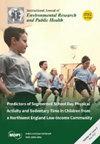Racial Attitudes and Perceptions of Government Response during the COVID-19 Pandemic: Implications for Public Health Strategies
3区 综合性期刊
Q1 Medicine
International Journal of Environmental Research and Public Health
Pub Date : 2024-09-05
DOI:10.3390/ijerph21091183
引用次数: 0
Abstract
Background: This study explored whether opinions about the government’s role in addressing the COVID-19 pandemic vary based on demographic characteristics and racial beliefs. We hypothesized that opinions about the United States (U.S.) government’s response to COVID-19 would differ based on an individual’s characteristics such as age, race, and racial beliefs. Methods: We utilized an Inter-University Consortium for Political and Social Research dataset to examine differences in opinion regarding the government’s pandemic response, considering personal characteristics and racial beliefs. Descriptive statistics depicted respondents’ characteristics, and a Chi-square test for independence assessed whether differences emerged based on racial attitude, self-reported racial identity, sex, income, education, and age. Logistic regression analyses were conducted to independently determine which characteristics were associated with differences in evaluating the government’s pandemic response. Results: The sample consisted of 1028 respondents: 47.5% male and 52.5% female. Overall, the group viewed the government unfavorably, with only 40% reporting that the government responded correctly and 54% believing the government is almost always wasteful and inefficient. Hispanics or Latinos were more likely to view the government as wasteful or inefficient, while more Whites rated the government’s pandemic response as appropriate. Individuals who believed that racial discrimination is the main reason why many Black people cannot get ahead generally regarded the government’s pandemic response more favorably. Only 5% deemed the government’s response excessive. Being Black, younger, and female was associated with the view that racial discrimination is the main reason why many Black people cannot get ahead. Individuals who felt this way viewed the government unfavorably by almost a 2:1 ratio. Conclusions: A majority of U.S. residents do not believe the government responded correctly to the pandemic and more than half viewed the government as wasteful and inefficient. Differences emerged by ethnicity and racial attitudes, with individuals of color holding more negative views of the government’s response. Understanding this perspective can help develop messaging and strategies that resonate with communities where racial and minority groups live.种族对 COVID-19 大流行期间政府应对措施的态度和看法:对公共卫生战略的影响
研究背景本研究探讨了人们对政府在应对 COVID-19 大流行病中所扮演角色的看法是否会因人口特征和种族信仰而有所不同。我们假设,对美国政府应对 COVID-19 的看法会因个人的年龄、种族和种族信仰等特征而有所不同。研究方法:我们利用大学间政治与社会研究联合会(Inter-University Consortium for Political and Social Research)的数据集研究了个人特征和种族信仰对政府应对大流行病的看法差异。描述性统计描述了受访者的特征,而独立的卡方检验则评估了种族态度、自我报告的种族身份、性别、收入、教育程度和年龄是否会产生差异。我们还进行了逻辑回归分析,以独立确定哪些特征与评价政府大流行病应对措施的差异有关。结果样本由 1028 名受访者组成:男性占 47.5%,女性占 52.5%。总体而言,该群体对政府的看法不佳,只有 40% 的人认为政府的应对措施正确,54% 的人认为政府几乎总是浪费和效率低下。西班牙裔或拉美裔更倾向于认为政府浪费或效率低下,而更多的白人认为政府的大流行病应对措施是恰当的。认为种族歧视是许多黑人无法出人头地的主要原因的人一般对政府的大流行病应对措施评价较高。只有 5%的人认为政府的应对措施过度。黑人、年轻和女性与种族歧视是许多黑人无法出人头地的主要原因这一观点有关。持这种观点的人对政府的负面看法几乎达到了 2:1。结论大多数美国居民不认为政府对大流行病做出了正确的反应,一半以上的人认为政府浪费和效率低下。不同民族和种族的态度出现了差异,有色人种对政府的应对措施持更消极的看法。了解这一观点有助于制定能引起种族和少数民族群体所在社区共鸣的信息和策略。
本文章由计算机程序翻译,如有差异,请以英文原文为准。
求助全文
约1分钟内获得全文
求助全文
来源期刊

International Journal of Environmental Research and Public Health
Medicine-Public Health, Environmental and Occupational Health
CiteScore
7.30
自引率
0.00%
发文量
14422
审稿时长
1 months
期刊介绍:
International Journal of Environmental Research and Public Health (IJERPH) (ISSN 1660-4601) is a peer-reviewed scientific journal that publishes original articles, critical reviews, research notes, and short communications in the interdisciplinary area of environmental health sciences and public health. It links several scientific disciplines including biology, biochemistry, biotechnology, cellular and molecular biology, chemistry, computer science, ecology, engineering, epidemiology, genetics, immunology, microbiology, oncology, pathology, pharmacology, and toxicology, in an integrated fashion, to address critical issues related to environmental quality and public health. Therefore, IJERPH focuses on the publication of scientific and technical information on the impacts of natural phenomena and anthropogenic factors on the quality of our environment, the interrelationships between environmental health and the quality of life, as well as the socio-cultural, political, economic, and legal considerations related to environmental stewardship and public health.
The 2018 IJERPH Outstanding Reviewer Award has been launched! This award acknowledge those who have generously dedicated their time to review manuscripts submitted to IJERPH. See full details at http://www.mdpi.com/journal/ijerph/awards.
 求助内容:
求助内容: 应助结果提醒方式:
应助结果提醒方式:


